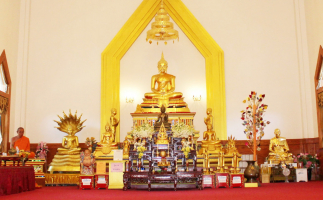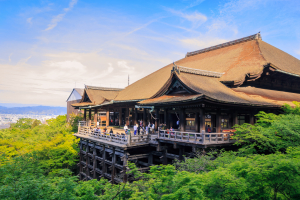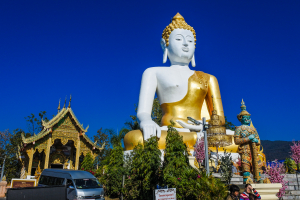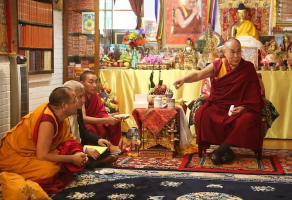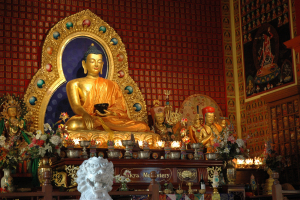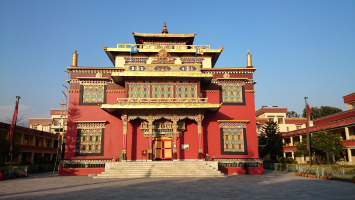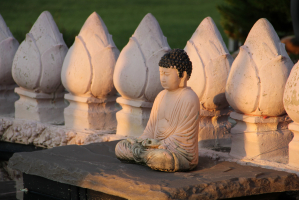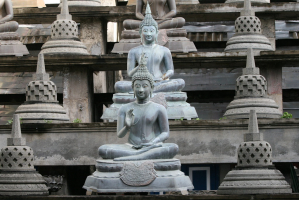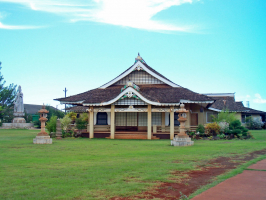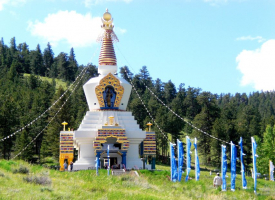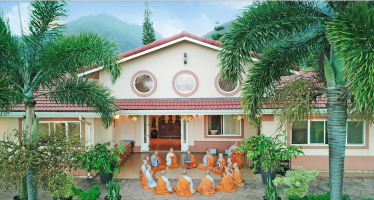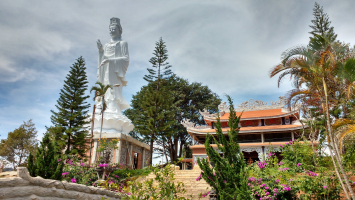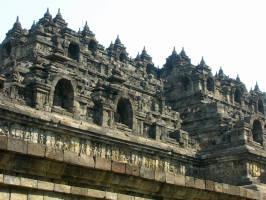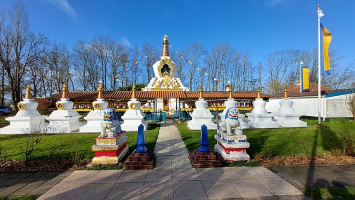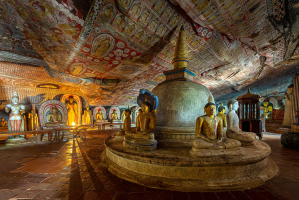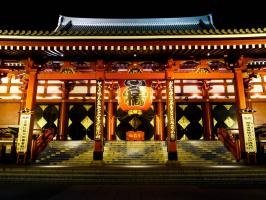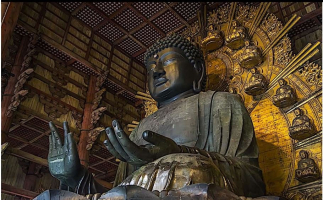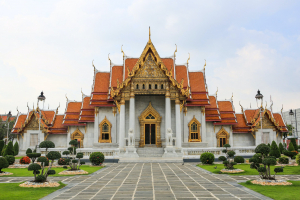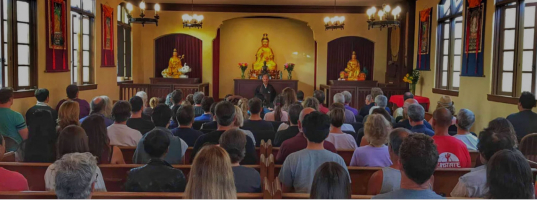Top 7 Best Buddhist Temples in Seattle
Some truly peaceful Buddhist temples are nestled in Seattle's lively mix of cultures. In this exploration, we'll dive into the serene atmosphere and beautiful ... read more...designs that make the best Buddhist temples in Seattle stand out. These temples represent a blend of old and new practices.
-
The Seattle Betsuin Buddhist Temple, officially known as the Seattle Buddhist Church Betsuin, is a Jodo Shinshu Buddhist temple in Seattle, Washington. Located at 1427 South Main Street, Seattle, WA 98144, the temple is affiliated with Jodo Shinshu Hongwanji-ha, a school of Pure Land Buddhism. It is a member of the Buddhist Churches of America (BCA) and the Jodo Shinshu Buddhist Temples of Canada.
Established in 1901, the Seattle Betsuin has a rich history deeply rooted in the Japanese-American community. Throughout the years, the temple has been a source of support and community during challenging times, notably during World War II when Japanese Americans faced internment.
The temple hosts a variety of services, ceremonies, and cultural and educational activities. Regular offerings include meditation sessions, Dharma talks, cultural festivals, and community outreach programs. For the latest schedule of events, individuals are encouraged to check the temple's official website or directly contact the temple.
Actively involved in the broader Seattle community, the Seattle Betsuin promotes understanding and harmony among different cultures and faiths. Participation in interfaith and charitable activities is part of the temple's community involvement.
Celebrating various cultural events and festivals, such as Obon, the temple embraces traditions that honor ancestors. Open and welcoming to individuals from all backgrounds, the Seattle Betsuin encourages people to explore and learn about Buddhism. Membership information and details on getting involved are typically available on the temple's website or by contacting the temple office.Detailed information:
- Address: 1427 South Main St, Seattle, WA 98144, United States
- Phone: +1 206-329-0800
- Website: https://seattlebetsuin.com/
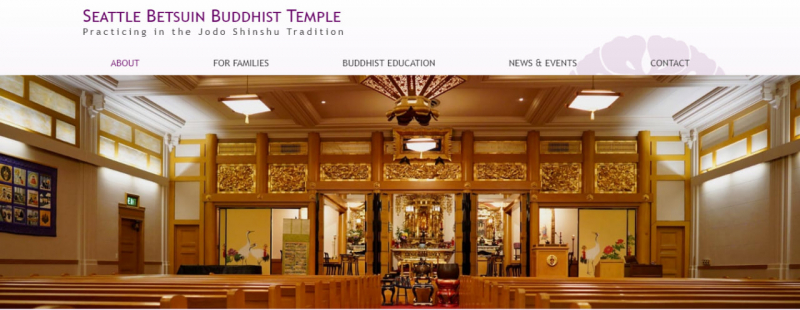
Screenshot of https://seattlebetsuin.com/ 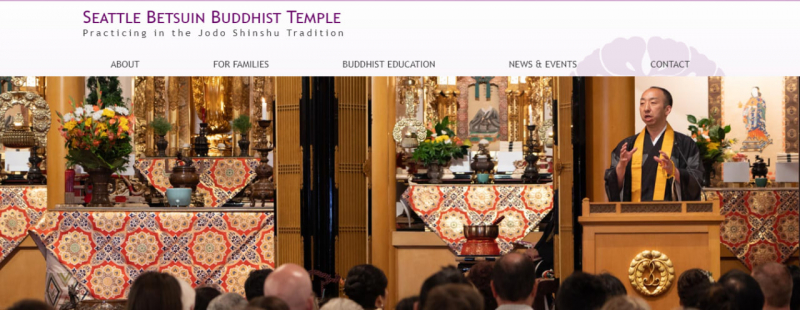
Screenshot of https://seattlebetsuin.com/ -
Nestled in the calm area of North Beacon Hill in Seattle, Washington, Dai Bai Zan Cho Bo Ji Zen Temple is a beautiful Buddhist temple and a special place for people who follow Buddhism. It was started in 1983 by Genki Takabayashi. The temple hosts various events, such as talks about Buddhist teachings every two months and weekly sessions to introduce people to Zen, which attracts many participants.
Genki Roshi, the Senior Priest, was invited by the Seattle Zen Center in the fall of 1977. Dr. Glenn Webb, a professor at the University of Washington, created the center. Genki Roshi agreed, and in early 1984, he established Cho Bo Zen Ji. The temple had its opening ceremony on October 1, 1984.
After training in Japan at one of the two main Rinzai school temples, Genki Takabayashi founded the temple based on the ideas of Rinzai Buddhism. Besides being a place for worship, Dai Bai Zan Cho Bo Ji Zen Temple is also a place to learn and practice Zen meditation.
Dai Bai Zan Cho Bo Ji Zen Temple is open to everyone, and they welcome all with open arms. No matter where you are on your spiritual path, they will work with you to help you understand and use the Seven Practice Modalities, follow their guidelines, and engage in the more challenging aspects of Rinzai Zen practice.Detailed information:
- Address: 1733 S Horton St, Seattle, WA 98144, United States
- Phone: +1 206-328-3944
- Website: https://choboji.org/
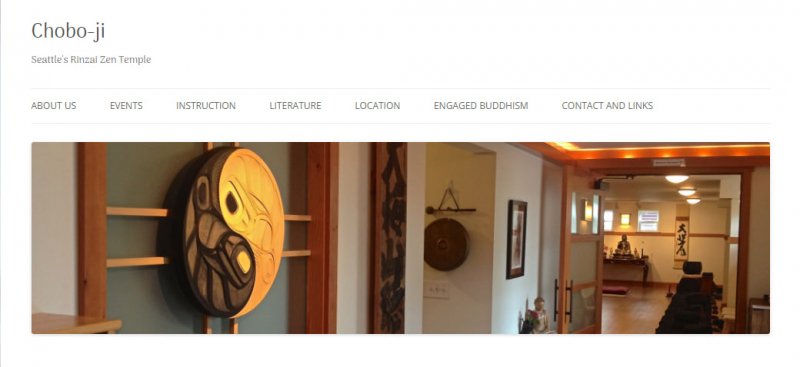
Screenshot of https://choboji.org/ 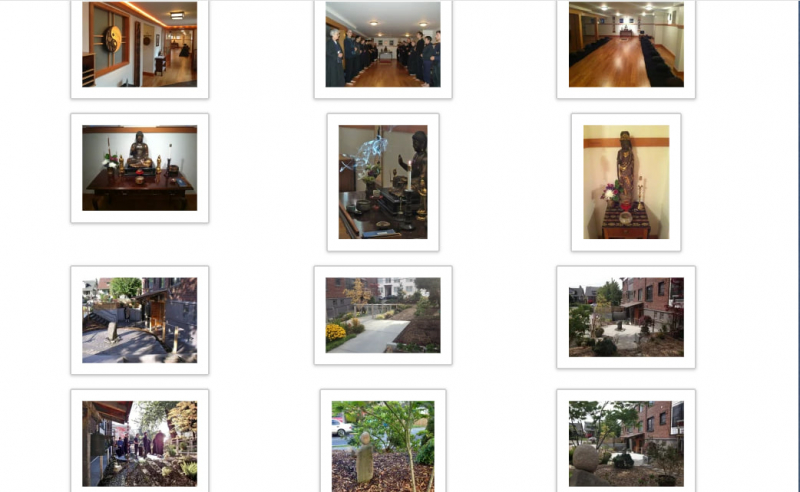
Screenshot of https://choboji.org/ -
Dzogchen Shri Singha of Seattle is situated at 1240 NE 175th St, Shoreline, WA 98155, and is affiliated with the broader Dzogchen Shri Singha International organization within the Dzogchen Lineage, a Tibetan Buddhist tradition. The Dzogchen Lineage profoundly emphasizes Dzogchen teachings considered the highest and most direct path toward realizing one's true nature.
Practitioners at Dzogchen Shri Singha of Seattle likely engage in teachings and practices deeply rooted in the Dzogchen tradition. These practices encompass meditation, rituals, and the study of Dzogchen philosophy, offering a comprehensive approach to spiritual development.
Community events are integral to the center's activities, providing opportunities for beginners and experienced practitioners to unite. Resident teachers or lamas at the center play a guiding role, leading practitioners on their journey of studying and practicing Dzogchen.
As part of the broader Dzogchen Shri Singha International organization, the center contributes to a global network of Dzogchen centers, all aligned with the teachings transmitted by Dzogchen Khenpo Choga Rinpoche. For those seeking to explore the teachings of Dzogchen Shri Singha of Seattle, online resources on their official website may offer valuable insights. These resources include instructions, articles, and event schedules, providing an accessible means of engaging with the instructions from afar.Detailed information:
- Address: 1240 NE 175th St, Shoreline, WA 98155
- Phone: 702-293-1685
- Website: http://www.dzogchenlineage.org/giving/about.html
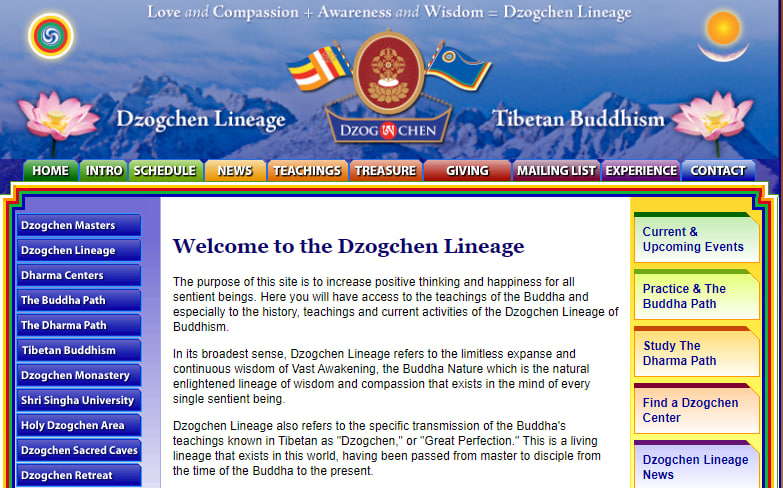
Screenshot of http://www.dzogchenlineage.org/giving/about.html 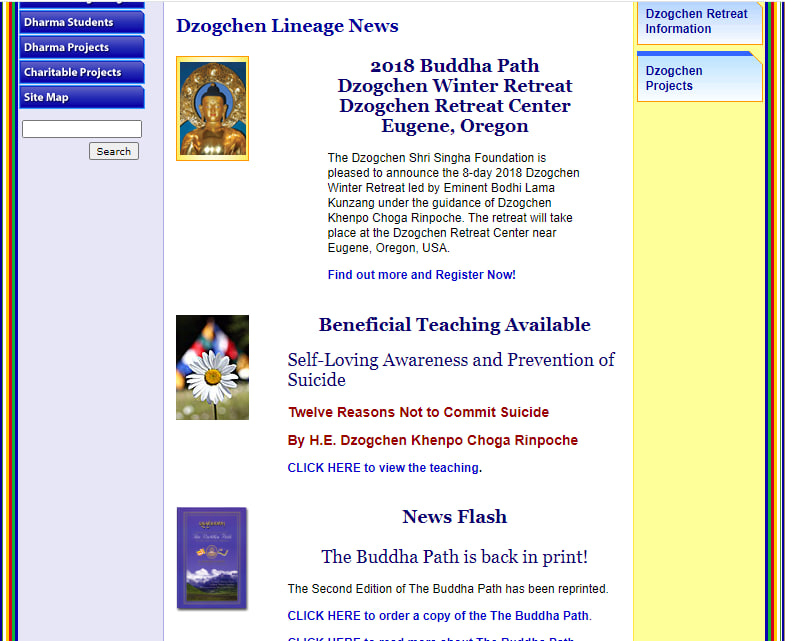
Screenshot of http://www.dzogchenlineage.org/giving/about.html -
Sakya Monastery, a prominent center for Tibetan Buddhism situated at 108 NW 83rd Street in Seattle, Washington, stands as a testament to the rich spiritual tradition of the Sakya school. Established in 1974 by H.H. Jigdal Dagchen Sakya, the Head Lama of the Sakya order, this monastery is rooted in Tibetan Buddhist teachings. The Sakya tradition, one of the four primary schools of Tibetan Buddhism, is renowned for its emphasis on scholarship and the profound study of Buddhist philosophy.
Under the guidance of H.H. Jigdal Dagchen Sakya, Sakya Monastery has become a hub for both the local Tibetan community and individuals interested in the teachings of Tibetan Buddhism. The monastery's history and leadership are pivotal in shaping the spiritual and cultural activities hosted within its walls.
At the heart of Sakya Monastery's offerings are diverse activities and programs. Regular teachings, meditation sessions, ceremonies, and cultural events are open to practitioners and the wider public. These initiatives reflect the monastery's commitment to sharing the wisdom and practices of Tibetan Buddhism with the broader community.
Besides, Sakya Monastery actively engages in community outreach and educational programs. The monastery seeks to foster a deeper understanding of Tibetan Buddhism and culture through classes, workshops, and events. Its library serves as a valuable resource for those eager to delve into the profound teachings of Tibetan Buddhism.Detailed information:
- Address: 108 NW 83rd St #3042, Seattle, WA 98117, United States
- Phone: +1 206-789-2573
- Website: https://www.sakya.org/
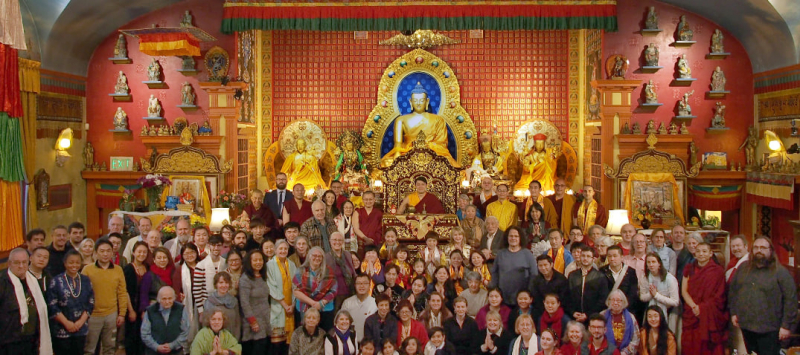
Screenshot of https://www.sakya.org/ 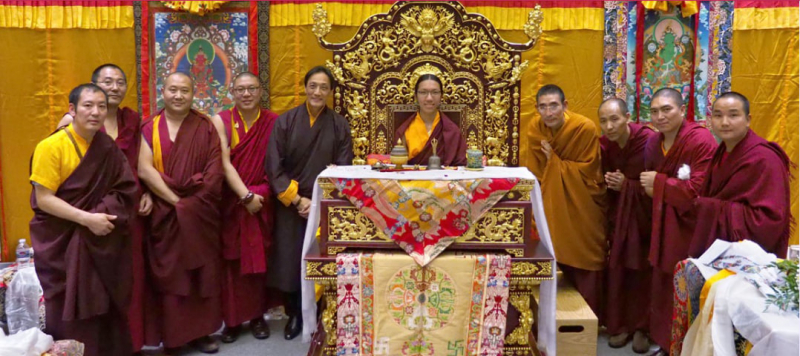
Screenshot of https://www.sakya.org/ -
The Atammayatarama Buddhist Monastery (ABM) was started on January 18, 1998, by the Thai and American Buddhist community in Washington state. It's a place that follows the teachings of Theravada Buddhism, explaining the path to freedom taught by the Buddha. This Buddhist Temple was officially recognized as a "not-for-profit" organization by the State of Washington on April 22, 1998.
It's a small, humble Buddhist temple in Seattle, surrounded by many trees and land. The temple follows the Theravada Buddhist tradition. Everyone is welcome here, no matter their beliefs, economic status, or background.
Ajahn Ritthi is the Abbot of Atammayatarama Buddhist Monastery. He is a monk and a teacher of Theravada Buddhism. He supports the ideas of his mentor, the great Theravada teacher Buddhadasa, who worked hard to promote a proper understanding and practice of Dhamma, mainly focusing on meditation practice in the forest. Ajahn Ritthi's primary teacher, Panyananda, is now 92 years old and lives in Bangkok; he is the last living member of Buddhadasa's group of reformers.
The main idea that keeps the Atammayatarama Buddhist Monastery running is "Generosity is not just about giving things but also about giving time, service, and yourself." Giving is seen as a way to build confidence in giving and receiving, which is essential for self-acceptance and contentment.
Every Wednesday at 7 pm, the Atammayatarama Buddhist Monastery has a Meditation practice. It starts with chanting in Pali and English, followed by a 45-minute meditation, a break for tea, and then a talk about Dhamma in English. Everyone is welcome, and you don't need any meditation experience.Detailed information:
- Address: 19301 176th Ave NE, Woodinville, WA 98072, United States
- Phone: +1 425-481-6640
- Website: http://www.atamma.org/
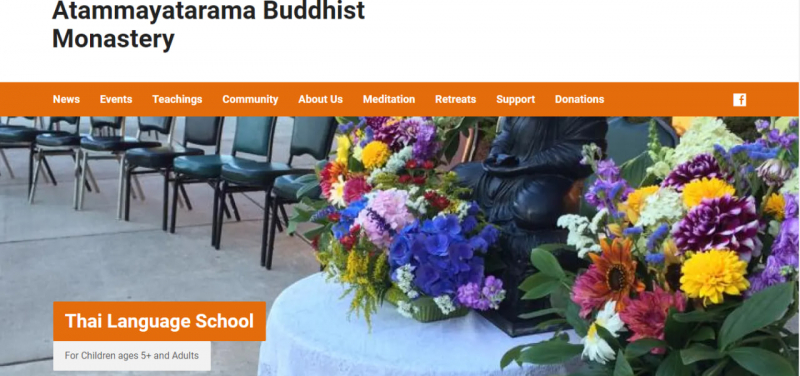
Screenshot of http://www.atamma.org/ 
Screenshot of http://www.atamma.org/ -
Another famous temple in Seattle that cannot be ignored is Choeizan Enkyoji Nichiren Buddhist Temple. Situated in the large Greater Seattle area, Choeizan Enkyoji Temple follows the teachings of the Eternal Shakyamuni Buddha, as explained in the Lotus Sutra. The temple's foundation is built on the principles of Nichiren Buddhism, a special kind of Buddhism from Japan in the 13th century.
Besides worshiping Buddha, the Choeizan Enkyoji Nichiren Buddhist Temple teaches the Lotus Sutra and offers various religious and social services, including weddings, funerals, and pet memorials. Reverend Kanjin Cederman, who trained in Japan at Shingyo Dojo, leads the temple.
Choeizan Enkyoji Temple is a community in Greater Seattle dedicated to learning and practicing Nichiren Buddhism. Their primary practice involves chanting the Odaimoku (Great Title) of the Lotus Sutra, "Namu Myoho Renge Kyo."
The temple is welcoming and inclusive. In 2013, Choeizan Enkyoji Buddhist Temple partnered with the UUA (Unitarian Universalist Association) to become a Welcoming Sangha. This means they openly invite everyone, embracing diversity and welcoming all into their spiritual community.Detailed information:
- Address: 501 S Jackson St UNIT 202, Seattle, WA 98104, United States
- Phone: +1 206-356-7405
- Facebook: https://www.facebook.com/p/Seattle-Choeizan-Enkyoji-Nichiren-Buddhist-Temple-100068782714044/
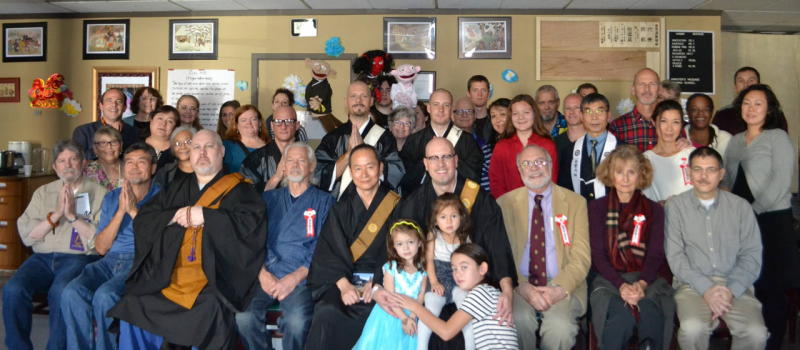
Screenshot of https://www.facebook.com/p/Seattle-Choeizan-Enkyoji-Nichiren-Buddhist-Temple-100068782714044/ 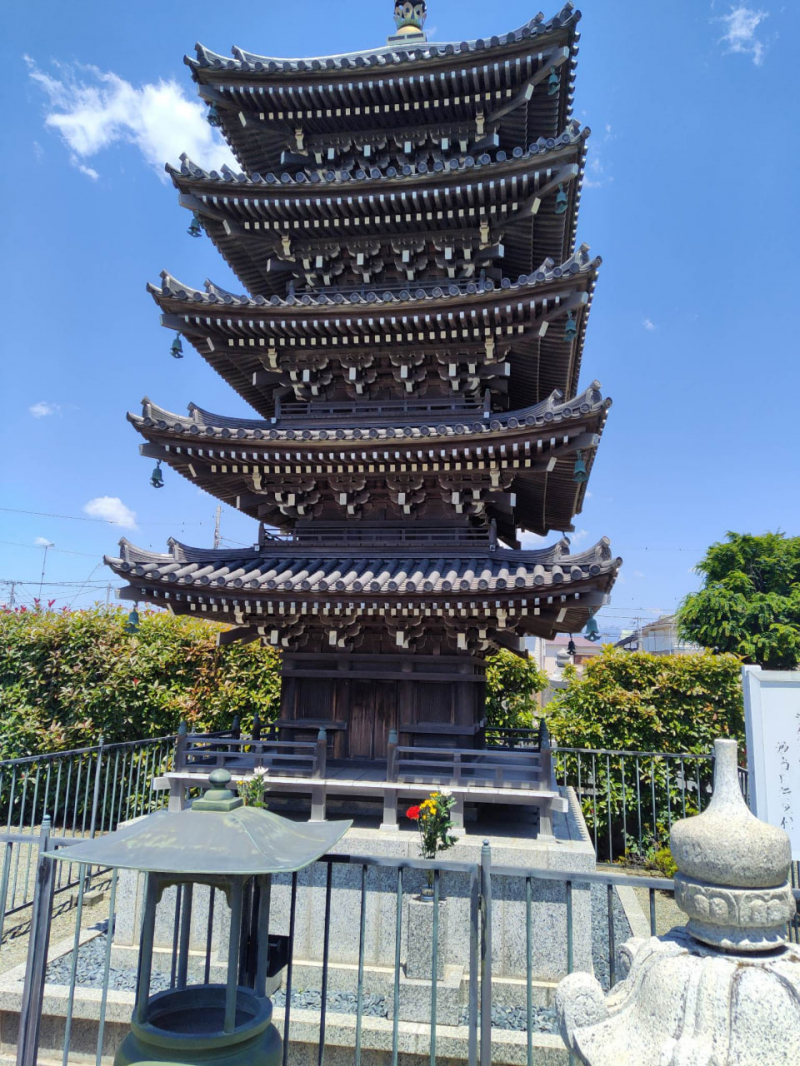
Screenshot of https://www.facebook.com/p/Seattle-Choeizan-Enkyoji-Nichiren-Buddhist-Temple-100068782714044/ -
Nestled in Seattle, Van Hanh Temple stands as one of the scarce Vietnamese Buddhist temples in the city, uniquely distinguished as the sole nunnery in the state of Washington. Operated entirely by women, the temple welcomes individuals of all genders, races, and religions seeking solace. Currently home to six nuns, including Le, who embarked on her journey in a Vietnamese nunnery at 14 and later sought refuge in the U.S. as a refugee during the 1980s.
Van Hanh Temple has become a cherished Buddhist destination in Seattle, celebrated for its serene spiritual ambiance and captivating architecture. Beyond its spiritual allure, the temple is a family-friendly destination and a haven for those seeking a tranquil space for contemplation and prayer. Children can partake in Vietnamese language classes every Saturday, with a nominal fee covering the session and a nourishing meal.
Sundays at Seattle's Van Hanh Temple witness vibrant celebrations that attract hundreds of Vietnamese community members, nuns, and visiting monks. Attendees gather to engage in prayer, listen to enlightening talks, and share moments of camaraderie. Buddha's birthday emerges as one of the temple's grandest celebrations, alongside Lunar New Year and the Vu Lan Festival, also known as Mother's Day. Established in 1994, Van Hanh Temple stands as a cornerstone of spiritual and communal life in Seattle.Detailed information:
- Address: 4837 S Fontanelle St, Seattle, WA 98118, United States
- Phone: +1 206-722-5305
- Facebook: https://www.facebook.com/vanhanhsantee/
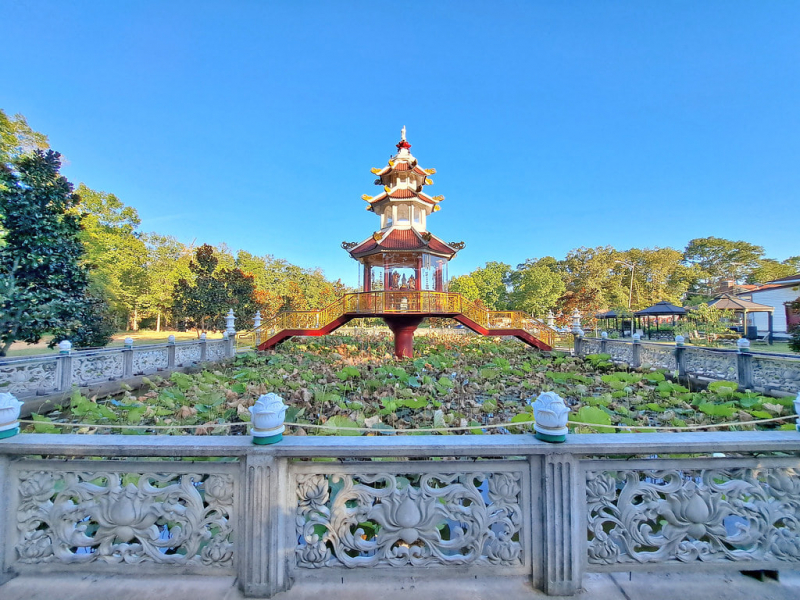
Photo of https://www.flickr.com/photos/beyonddc/53211903174 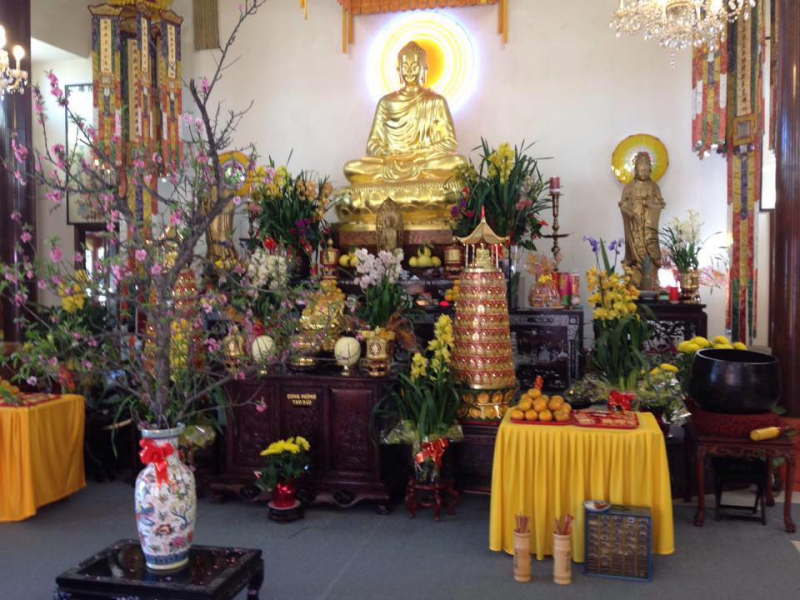
Screenshot of https://www.facebook.com/vanhanhsantee/









